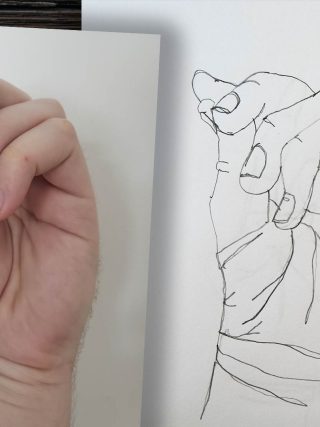In 2020, the City of Mahtomedi passed Resolution 2020-86, which approved a deer population management plan and an agreement between the City and Metro Bowhunters Resource Base. Upon hearing that the city adopted a similar resolution on September 7, 2021, I had some questions set out to answer some questions through a data practices request.
Foremost, I wanted to ascertain if Mahtomedi and its contractor were following their contract’s terms. Because the hunts were slated for residential areas, I wanted to know what credentials the contracted hunters possessed and which communities they were being pooled from. I wanted to know if there were any real or perceived conflicts of interest or preferential treatment. I also wanted to know where and when these hunts would take place, what precautions the City had taken to ensure safety, and what protocols were established in the event of a violation. This was of special importance to ensuring that procedures were established to keep hunters within their permitted zones. Additionally, I wished to understand the full planning process from the City Council’s perspective to see what options–lethal and non-lethal–were considered. If the city’s plan called for use of dangerous weapons in residential areas where there were children, pets, and houses, I wanted to know all of the considerations the city contemplated. If deer were being killed, I also wanted to know what the city was doing to mitigate the reliance on killing. After all, the city’s resolution sought to create a “peaceful co-existence of citizens and wildlife.”
Table of Contents
- Shortcomings Observed Through the Data
- Overview of Concerns
- First Data Request – September 21, 2021
- Second Data Request – October 7, 2021
- Third Data Request – November 8, 2021
- Data Request to Metro Bowhunters – December 23, 2021
- Fourth Data Request – January 8, 2022
- Other Questionable Findings
- Important Statutes and Advisory Opinions
- Conclusion
Shortcomings Observed Through the Data
Data requests revealed substantial problems with the city’s record management and how it responded to data requests. Below are just a few of the shortcomings observed through what data could be obtained.
- It looks like the city did not maintain originals or facsimiles of some official records
- No data showing the city knew or thoroughly vetted its volunteers prior to culling
- The city did not possess the original 2020 or 2021 hunter liability waivers
- The city did not have liability waivers for three of its hunters.
- The city failed to include the required notice in its contract that the Data Practices Act applied to its contractor – Minn. Stat. § 13.05, subd. 11(a), which does not invalidate its requirements.
- There were discrepancies between a list of names and addresses, liability waivers, and those permitted to hunt
- No data showing the hunters who were permitted by contract to hunt in Zone 2
- No data showing background checks or mental wellness checks were performed or required–background checks are required by other management plans, including Brooklyn Park’s.
- No data verifying training and certification beyond MBRB’s word the hunters were proficient
- No records on shots taken, missed, or resulting in a kill, even though MBRB records this information
- No data on conducted field inspections
- No cap on the maximum number of deer taken–this was stricken from the original draft language for the 2021 city resolution. (There was a maximum of 10 deer permitted in 2020.)
- No data on venison to the needy
- No hunt logs existed for 2020, which were contractually required
- No final summary reports for 2020 were provided. No data showed the number or gender of the deer killed. This was required by contract. The only evidence of four deer taken was in council minutes and newspapers.
- Inconsistent final reports between the city and MBRB’s official 2021 reports
- Requests for data showing the city had previously sent liability waivers were unanswered for months (and they had never sent them, nor possessed them at the time)
- Official records were transferred over-the-phone on post-it notes.
- No data on chronic wasting disease
- Inconsistent data between city counts of dead deer and county sheriff reports
- No data showing universal systems for collecting data on complaints, damages, collisions, areas frequented by deer, gender dispersal of herds, and deer killed by age and gender. (This is especially relevant for long-term planning.)
- No long-term herd projections
- Numerous records were not stamped to show when they were received by the city.
Further processes describing problems with data access and retention–including being misled by false statements from the city clerk–are covered in the following sections.
Overview of Concerns
Most importantly, I requested data that was required by the city’s government contract with Metro Bowhunters. I requested it four times from the city (twice before the hunts, once during the hunt, and once following) and also once from the contracted party while they were still under contract. Additionally, I routinely asked for that data in-between data requests. One could reasonably assume the city of Mahtomedi was well aware that it was not in possession of these important documents and permitted deer hunting activities against the terms of its contract with Metro Bowhunters. If the city was following its contract, no hunting should have occurred. I struggle to imagine that given my frequency of communication with the city, the city was not aware that it was not in possession of stipulated documents.
I would contend that the city of Mahtomedi disenfranchised me as a member of the public seeking data pursuant to a concurrent local issue. Because of the recency of the data requested, one might reasonably expect the city to have that data on-hand and accessible. Even if it wasn’t accessible, contracts necessitated the creation of certain data sets that appear to never have been in the city’s possession. The city took approximately five months to provide access to about thirty different data sets, three months for seven other data sets, and various lengthy durations for over 20 other data sets. Minnesota Statutes dictate that data responses must be provided promptly and within a reasonable amount of time, although this has been set to be “flexible.” I was originally provided with some of the data requested, but nowhere near commensurate to my requests.
Regarding other data, City Clerk Jerene Rogers provided the false statements on November 1, 2021: “The following responsive data was located and sent to you: …Copy of executed resolution approving hunt.” This was not received until January 9, 2022. At the same time, Rogers wrote: “Deer management participant (bow hunter) forms… have been previously provided to you.” This was in direct opposition the City Attorney Bridget McCauley Nason’s statement on December 22, 2021: “With respect to the timing of the data provided to you, the City provided the certificate of liability insurance and names and addresses of hunters upon receipt, which was on December 8, 2021 and December 1, 2021, respectively.”
The problem? These were required prior to the start of any hunting activities. These were supposed to be on-hand. I had routinely asked for these documents, and most of my inquiries about them were ignored. Hunts on six different dates had already elapsed. But, so far as I understand it, there’s nothing illegal about breaching a contract, and it’s clear the city had no intention of enforcing it, as they continually sought to limit access to data while working with Metro Bowhunters at public meetings, trying to find ways to ensure the data would not be released. This raises a number of ethical concerns along with questions. Should the public be comfortable with armed, anonymous government contractors who seem to have little transparency with and accountability to the communities they were hired to serve?
In fact, this year, MBRB and their attorneys were committed to codifying anonymity for their members by trying to change state statutes. That would mean all measures for transparency and accountability would be inaccessible to the public, including location data. Wait–the hunters wanted to make where they culled during city-contracted hunts private? Doesn’t that seem like avoiding accountability measures that would provide transparency regarding whether any trespassing occurred? Metro Bowhunters recently proclaimed that “with the exception of a couple of hunt areas, MBRB is no longer providing individual names to the localities that we work with; most localities will no longer ask for it.” Are you comfortable with the fact that no one will know who’s being permitted to wield dangerous weapons to provide services in residential areas, not even your local government?
What if we applied the same standard to police officers?
In the capacity of serving the communities as government contractors, they are not, as they purported, recreational in nature.
While the bowhunters have alleged that current law unfairly makes their volunteers’ names public, the glaring loophole appears to be in the city’s contract. Nason clarified that “the City’s contract with MBRB does not require first and last names of hunters or their home addresses.” While it would be expected that the hunters’ addresses–which are classified as private–would be redacted, members of the public would presume that the city would maintain those addresses on file. This does not appear to be the case. The document provided to the city on November 30, 2021 shows first names and Metro Bowhunters’ post office box in Edina. While addresses are protected as private information and names are public, it’s concerning that the local government unit did not have–and appears to have not wanted–this information for liability purposes. Also, are liability waivers valid if they are redacted and missing legible names? What if they are missing the date, as was the case with one 2020 form? I perceive government contracts to be a contract between the people and the city’s contractor. I take issue with sloppy contracts that provide loopholes to skirt accountability.
It is of additional importance that the data practices issues I encountered appeared to pertain to “records management” and thus outside the scope of the Data Practices Office. The DPO opined: “The issues largely come down to the City’s records management practices, which, while connected to data practices, are outside the scope of the Commissioner to issue an opinion.” Recourse would be through the courts to access data–a costly alternative where I would likely need legal representation on my behalf while the city, with the public’s tax dollars, is already guaranteed legal representation. Any challenger would effectively be paying twice for legal representation. As stated by the DPO: “If you have requested data from a government entity that they are supposed to maintain because of the Official Record Act, you may file an action to compel compliance in either district court or OAH. Either forum may impose a civil penalty, in addition to ordering an entity to provide access.”
What would be the point of going through the process now? The hunts are over. The city never recorded the legal identities of its volunteers, and it appears they proceeded with hunting against the terms of their contract. Thankfully, there were no major incidents this time. However, it speaks volumes about the government’s transparency and its lack of procedures to safeguard the public. I would still contend that, given the following, the city still had substantial issues with data practices and records access.
First Data Request – September 21, 2021
On September 21, 2021, the city of Mahtomedi received its first request for data underneath the Minnesota Government Data Practices Act (MGDPA). All data was sought prior to the commencement of hunting. Jerene Rogers, the city clerk, first responded on September 28. Rogers subsequently followed up on October 6 to set up a time to review the data. Concerningly, her email also claimed that my request contained “various questions” that were not data practices requests–despite the requests containing no questions and being developed from the guide on the MGDPA website. It is possible the city interpreted my wording as questions to delay access to the data.
I am also willing to admit that with this being my first attempt at a data practices request of this nature, I learned a bit about structuring requests.
Second Data Request – October 7, 2021
In the interest of time, I immediately produced a second data request on October 7, so as to not delay access to the requested information. This was a reframed version of my earlier request with a few areas of expansion. This addressed most of the basic areas where the city had denied providing me data. This mostly removed language using “what” and “where,” and requests for lists. It removed references to “information,” instead seeking “all data that document…” It also sought how the city determined my earlier request contained questions and items that were “not data practices requests.”
I received my first out-of-office reply from Rogers–one of many that were to come. I called the city to set up an appointment and was emailed data shortly after. However, the data was scarcely commensurate with the request and contained mostly city minutes and agendas. Landowner consent forms and a few complaints were forwarded, but much of the data I sought–including the final signed resolution adopting the deer management plan–were not provided until months later.
Rogers wrote on November 1, 2021 that this second request was “a restated version of [my] first request.” However, this request was more than just a restated version, as it refined a number of points, requested time frames, and potential roadblocks to data access. This was also the first time the city acknowledged and responded to my second request, 25 days later. Coincidentally, that was the same day I had reached out to the Data Practices Office for assistance.
As described in the introduction, this was the communication where Rogers falsely stated that bowhunter participation forms and the resolution approving the hunt had previously been provided to me.
Third Data Request – November 8, 2021
The third data request was more or less an appendage to my earlier two requests, seeking to expand the scope of my search. Believing the city was being dishonest with what data it had previously provided to me, I sought correspondences and transmissions of data from the city to me. Having reviewed the full language of the contract, I was able to request data more specific to it. I was also under the impression that all adjacent landowners needed to provide consent; this was a misunderstanding, as landowners only needed to provide consent if their properties were to be used for hunting activities. I was later informed that no private property had been used. Additionally, I was informed by Public Works Director Bob Goebel that no city-owned land was used for hunting on the parcel located in Zone 2. “They did not hunt in the Mahtomedi area of Zone 2. Only in Birchwood.”
Furthermore, Goebel said, “MBRB has never provided the hunters (sic) personal addresses or names to any of the entities they have served, as a way to provide protection under Minnesota Harassment Law.” This clarification cited no statutes and also conflicted with the expressed terms of the contract with the city.
It was shortly after this request that I discovered a dear and special family member was diagnosed with terminal cancer. My hope was that the city would respond appropriately with the remainder of the data so I could finish looking into the city’s deer management issue and focus solely on spending time with my family. I had no such luck.
November was fraught with much silence, as I received numerous “out of office” replies and few promises that the city attorney would respond. (It is important to note that the first response from Nason came on December 16, 2021, after over a month of waiting for her to review and respond, per correspondence with Rogers.)
In early December, I finally received the certificate of liability insurance, redacted names of hunters, and redacted liability waivers. This was after all hunting dates had occurred. Mid-December, I received the final hunt report and data retention schedule. However, outside of these items, virtually no responsive data was sent for almost two months. It wasn’t until December 22, 2021 that the wheels finally started to turn and larger quantities of data were made available.
Data Request to Metro Bowhunters – December 23, 2021
Realizing the city did not have all of the data I sought, and knowing that those under contract have an obligation to provide government data if the city didn’t possess it, I sent a request to Metro Bowhunters on December 23 and then again on December 27, as the email address listed on their website bounced. MBRB’s liaison to the city was included in this communication. I maintain that reaching out to the hunters would not have been necessary had the city responded more appropriately to my request and if the city had better records management. This request sought much of the same information I requested from the city–and much pursuant to contract terms–but was more broad in scope to ensure there were no loopholes in what could be left out.
To this end, I requested all data about deer; populations, biological, and ecological data; also live, dead, killed, injured or maimed, and diseased; hunting, hunters, and hunts–including all participants, contractors, volunteers, forms, certificates, certifications, contracts, licenses, tags, names, addresses, etc. (all hunt data, especially that required by the contracts with Mahtomedi and Birchwood); disease testing and results; locations of deer and hunters; logs, journals, communications, and other recorded, kept, and maintained data; internal communications between members of MBRB that facilitated the hunt; communications to the Mahtomedi and Birchwood; deer meat, donations, and recipients; incidents, complaints, violations, accidents, and deer not retrieved; and expenses, costs, and reimbursements.
Additionally, I realized that the delays in receiving access to data might not have been entirely because of the city. Nason’s statement that data was forwarded “upon receipt” clued me in that perhaps the city’s independent contractor was responsible for the delays. I began looking into Metro Bowhunters’ nonprofit information, which raised a few questions about information missing online. To this end, I also requested MBRB’s public disclosures, three most recently filed annual information returns for the IRS including 990 forms (including the 990-T), Form 1023 or Form 1024, application for tax-exemption, and any schedules, attachments, or supporting documents, including determination letters from the IRS. I should clarify that this is all information the public has the right to request of nonprofits.
Based on the city’s previous poor responses throughout this data request process, a tertiary area of interest was whether Metro Bowhunters would comply with other legal requirements, as it was obvious at this point that the hunters had not provided the city with data according to the schedule outlined in their contract. Regarding requests for nonprofit public disclosures and exemption applications, by law, responses are required within 30 days of receiving a request. According to Bolder Advocacy: “An organization without a physical office or with a physical office that has irregular public hours or very limited public hours must make its application for tax exemption and annual information returns available for public inspection at a reasonable location of its choice, including a reasonable time of day within two weeks of the request.“
After not receiving a response for a month, I followed up several times. MBRB’s attorney, Tim Keane, made clear in mid-February that the bowhunters had no intention of providing these nonprofit public disclosures. Subsequent requests for public IRS documents were ignored. I requested these again on March 12, 2022. I still have yet to receive any of them.
Fourth Data Request – January 8, 2022
A final “expansive” request was made to the city of Mahtomedi on January 8, 2022 with the expressed purpose of ensuring that the city could not give the excuse that I hadn’t specifically requested certain data. This request was several pages long with each line providing specific examples of what was requested. Broadly in its introduction, it sought data on deer, the hunts, transmission of data, and data about my previous requests.
Through the results of this request, I was able to concretely establish time frames of when data was sent and received by the city. Through this, it was proven that the city was not in possession of contractually required information when it was supposed to be. Data also demonstrated that Rogers had not, as she had written, provided liability waivers or the resolution adopting a deer management plan previous to her November 1, 2021 email, as she alleged.
It was also through this last request that it became exceptionally clear the city had not researched other methods of deer management beyond recruiting bowhunters. I received data that showed population numbers spanning a decade based on aerial counts from a helicopter. I finally received plans the city was given from other local communities, receipts, internal communications, a dismal number of code enforcement reports, MBRB literature, videos of wounded deer, DNR-provided presentations, newspaper clippings, physical letters of complaint, printed council minutes, deer-vehicle incidents from the county (these were not in the possession of the city and were requested by the city from the county for my request), and city log of dead deer (which did not always list ages, genders, or specific locations). It wasn’t until the end of this final request in March 2022 that I obtained over 40 different data sets that had previously been requested, most of which were from my September and October requests. How can the city’s responses be considered anything other than prompt and within a reasonable amount of time?
Other Questionable Findings
Official Records Created Through Post-it Notes
When asked about the hunt logs required under contract, Nason wrote: “The 2021 hunt log was created by city staff based on information provided by MBRB. The information provided to the City was provided verbally, written down on post-it notes, and transferred onto the spreadsheet. The City does not have the post-it notes any longer.” She furthered that the city never received any hunt logs for 2020 and unredacted hunt logs for 2021 were classified as private. Could this poor process have led to the discrepancies between the city’s official records and Metro Bowhunters’ final hunt reports, or were these more of a duplicitous nature to skew perceptions about what was hunted? Final hunt logs differed by 16%, with the city’s log showing four more bucks were taken while MBRB’s report showed fewer bucks and more does–both differing on the ages and genders of the deer shot. Was this to lessen public perception of its members being “trophy hunters?” Additionally, it would seem the city’s method for preserving official documents or facsimiles of the originals fell short of protecting and preserving government records from deterioration, mutilation, loss, or destruction. Does this open the city up to a potential lawsuit?
This seems as sketchy as the contracts Minneapolis recently issued, where the city stated that, “written reports were not required of contractors.”
Metro Bowhunters Appear to Have Changed Required Records
Emails obtained from the city show the exchange between current MBRB president Deb Luzinski, Joe Palen, and the city. “I just fixed the ‘easy’ document that I just sent,” Luzinski wrote on November 30, 2021. “Now all of the addresses are the same.”
This came after the time stipulated by the contract: “The selection of the qualified archers that will participate in the deer hunt, as well as the names and addresses of the qualified archers that will participate in the deer hunt will be provided to the City Liaison prior to the commencement of the first scheduled deer hunting event.” The first hunt was October 14, 2021. This exchange appears to show Metro Bowhunters intentionally changing the addresses that were to be provided to the city to a UPS box in Edina. Were volunteer names also redacted at the same time? It is of extreme importance that the city never previously had written record of the names and addresses of its armed volunteers prior to this interaction.

Even more, this log only showed ten of the hunters’ first names and the UPS mailbox for MBRB. Liability waivers showed 11 individuals. Meanwhile, the final summary report of hunt data showed 11 individuals, three of whom were different, not previously listed, and for whom no liability waivers were obtained.
Also of concern, these documents were never stamped by the city to show when they were received. Because these were obtained after six hunt dates were completed, were releases of liability completed on October 12, 2021 as indicated? This leaves open the possibility that the forms could have been back-dated to give the appearance of compliance. If so, would this be considered a fraudulent action to misrepresent or mislead? More importantly, what would have happened if a significant incident occurred, leading to property damage or injury?
Hunter Log, Comprehensive Lists Not Provided
A December 1 email from Bob Goebel showed a few screenshots from the hunting app, onX.
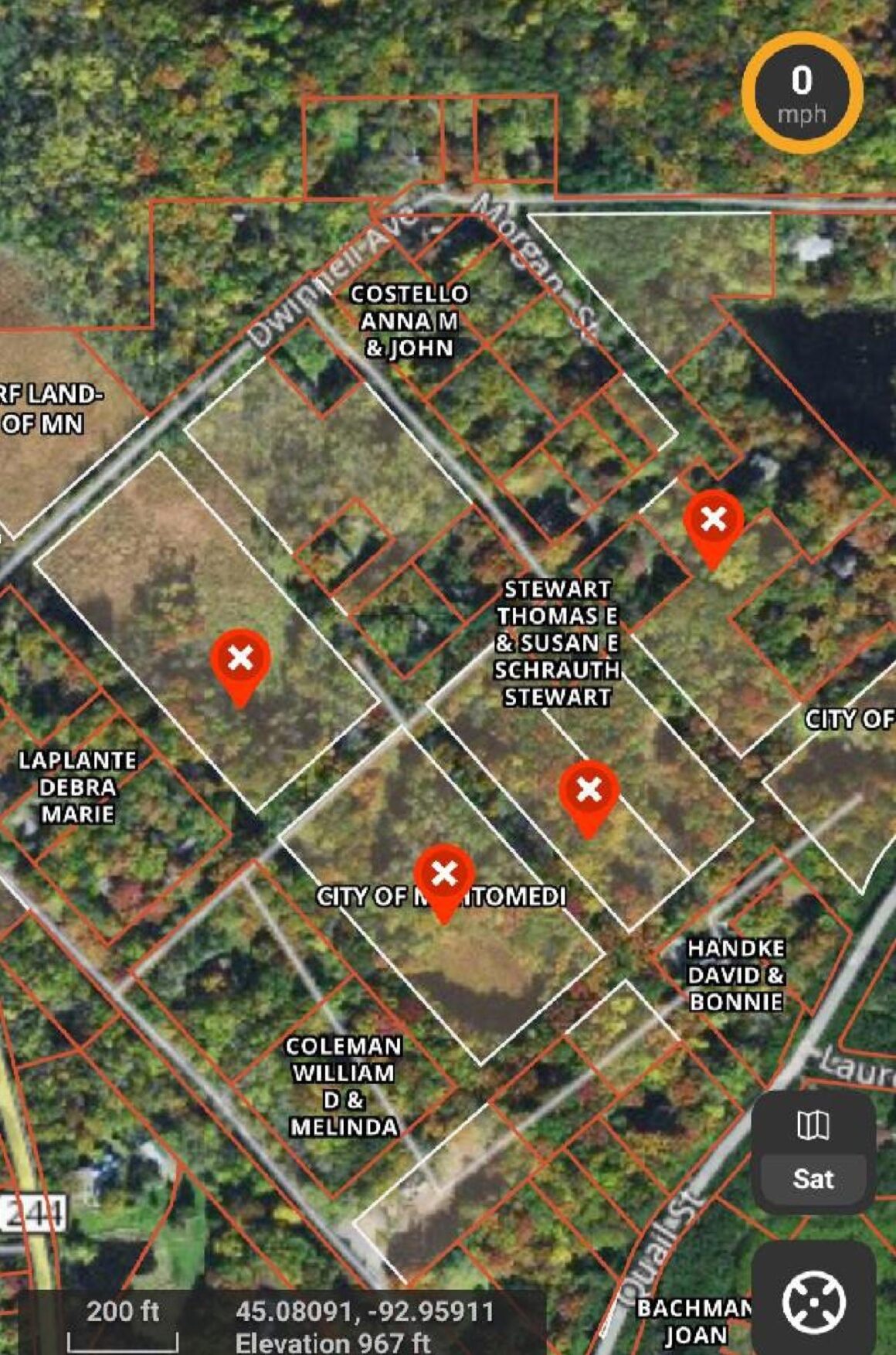
In an email titled “Hunters Log,” Goebel wrote that “a more comprehensive list” of what was tracked was being put together by one of the hunters. Despite this, Rogers wrote on April 11, 2002 that there was not a more comprehensive list of what was tracked. “The information provided is the only responsive data the city received.” This shows a lack of follow through. The city should have this data, not only to account for hunter actions, but also to maintain data about herd behavior. Detailed logs concerning deer populations are highly recommended for implementing deer management plans by several credible sources. Why did the city not obtain these?
No Reports of Shots Taken
Although this was not explicitly required of Mahtomedi’s contract, it was a stipulation of Metro Bowhunters that, “All hunters must report all shots taken and the outcomes of those shots (missed, hit and recovered, hit but unrecovered) on the daily hunting log.” The contract did require, “On a daily basis, gather hunt data from each participant.” Shouldn’t the city have wanted to know more about this?
More Hunters in Each Zone
On October 5, 2021, during the report from the administrator, Goebel told the council that there would be two hunters in each of the three locations. This belied the reality. The Dwinnell Nature Area (Zone 1) logged four hunters each day. Katherine Abbott (Zone 3) routinely logged seven hunters concurrently.
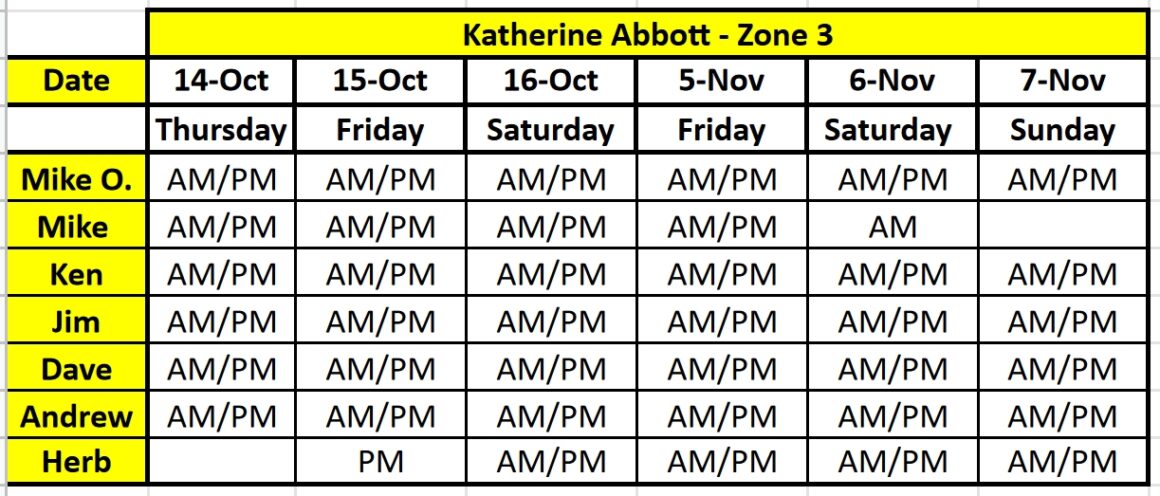
Despite having contracted to hunt in the Mahtomedi/Birchwood parcel, no hunters were logged on the Mahtomedi side. This was further evidenced by onX screenshots sent from MBRB liaison Joe Palen to Goebel, only including data for Katherine Abbott and the Dwinnel Nature Area.
Goebel’s statement about two hunters in each zone came a little more than a week from the first hunt date. Having more than three times the number of hunters that the public was informed would hunt in each zone was exceptionally deceptive and dishonest with the public.
Residential Incidents, Disputes With Hunters, and Potential Conflicts of Interest
Rogers wrote: “There have not been any issues or accidents with these hunts, they have run very smoothly.” Pursuant to my request for all data of issues that arose during hunts (per Exhibit A, item 7) and reports of trespass or accident (per Exhibit B, item 10), Nason wrote: “The City has no data responsive to your request, however, the City is aware of an incident involving a deer that was shot by a hunter on City property and then wandered onto private property; the MBRB hunter was unable to retrieve the deer and the Washington County Sheriff’s department was contacted.”
On November 5, 2021, one incident was reported about a wounded deer in Katherine Abbott running away. It was “not found” according to the city’s final report. The city’s log showed no further information about this deer. However, police reports did, including the previously mentioned private property dispute.
On November 7, 2021 at 7:37 a.m., an officer reported at Hazel Avenue: “Mediated a dispute of a dead deer between a property owner and a hunter hired by the city. The deer was found to be on private property and the property owner wanted it and took it. n/f” Maps appear to show parking demarcated for hunters at the same premises, and also that this parcel was outside of the allowed hunting area.
Later in the day, at 3:49 p.m., an officer reported at Prestwick Terrace: “I was dispatched [to] a wild animal call in Mahtomedi. I located a deer with an arrow sticking out of its back. The arrow appeared to be barely stuck inside of the deer. The wound did not appear to be fatal. The deer was walking around and not bleeding. The deer was able to jump a six foot tall fence. The deer was left alone due to the fact that the deer appeared to be fine. The arrow looked like it may fall out at any moment. Surrounding neighbors were notified of the deer. Nothing further.“ Was this the deer from November 5 or another deer?
The following day, at Berwick Place at 11:03 a.m., a police report noted: “Maht Public works requested I help with an injured deer near the listed area. The deer was located and it had an arrow sticking out of its back. Due to the houses etc I was not able to dispatch the deer. Public works employee shot it with an arrow. The deer ran into some thick brush and we were not able to locate it.“ So, not only did the bowhunters fail to quickly kill this deer, public works employees failed in that regard as well. There also appears to be inconsistencies between officers determining whether the deer should live or die. It would seem this situation was anything other than smooth, as the city clerk alleged.
Because of concerns about the size of the hunt areas, Metro Bowhunters previously said that it would hand-select the most-knowledgeable and experienced hunters. If this is the result of their most experienced hunters, I would hate to see the results of their lesser experienced.
Several other pieces of data are important. On November 10 at 4:03 p.m., police responded to a report of a dead deer found on property on Long Lake Road, just across from the city’s public works building and adjacent to designated hunting zones.
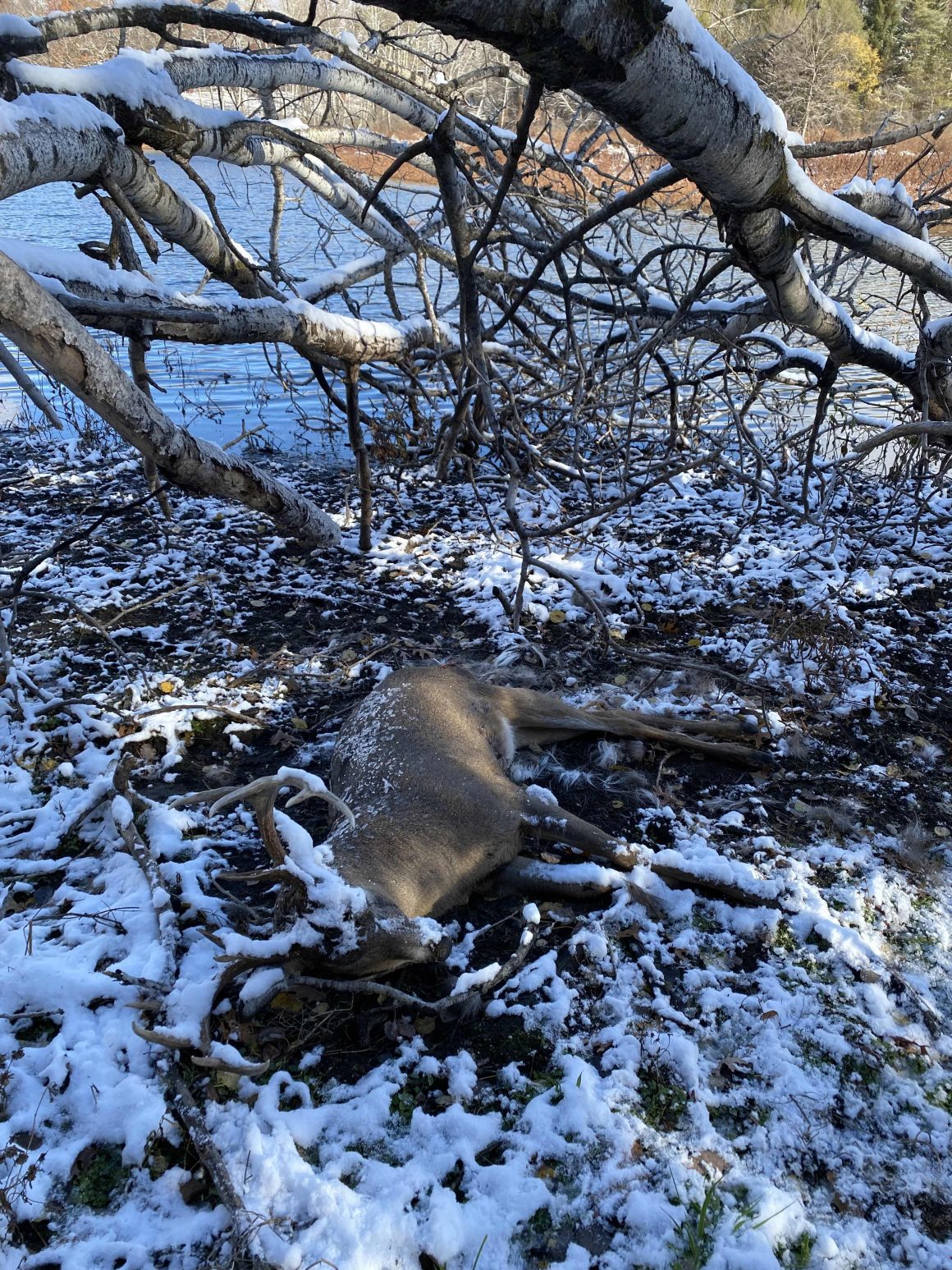
Was the deer shot by MBRB and public works this 11-point trophy buck, reportedly found on November 15, near the shoreline on the southwest corner of the lake and nearest the eastern edge of park? And what happened to this deer after the citizen’s report? It was unaccounted for on official hunt logs, the city’s log of dead deer, and Washington County Sheriff Office’s incident summaries. It’s important to remind readers that MBRB members “aren’t trophy hunters.” And if parties involved, whether MBRB or the city, are not trophy hunters, why was this deer never recorded? So where did it go and who took it?
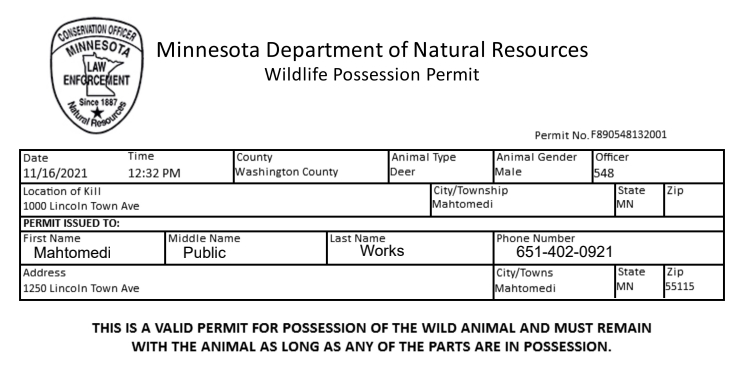
If it was given to Mahtomedi Public Works, why was there no record of this 11-pointer on any of the city’s logs, including the “Dead Deer” log authored by Bob Goebel or the final hunt report prepared by Jeannie Novak of public works? Both appear to work at 1250 Lincolntown Avenue, the location identified on the wildlife possession permit.
Email correspondences between city employees show City Administrator Scott Neilson forwarding this concern to Public Works Director Goebel, who in-turn reached out to Public Works Maintenance Operator Ken Bell, which is where the email thread stopped. Could this be the same “Ken” who was shown to be hunting in Katherine Abbott Park? If so, how many city employees were benefiting from hunting opportunities? Does this represent a conflict of interest and fringe benefits while on the clock? And, could this be why the city and the bowhunters fought so hard to keep this public information from being released?
This is yet another argument for why the names of these volunteers are public information. My original request clarified some of the data requested was “out of concern for fairness over preferential treatment.” Yet, Neilson told the White Bear Press he “doesn’t have a clue” why the request was made. We’ll never know for sure, because the city–perhaps intentionally–never maintained this vital data. What little data there is points to questions about whether any conflicts of interest led to employees benefiting from a plan the public works director pushed so heavily for–including questions about employees from his own division.
More Dead Deer

These do not appear to be the only problems. My parents, who live nearby, notified me that they heard gunshots around the same time as the hunts. Whether or not it appears others in the community were emboldened to poach deer remains to be proven. However, my parents found a dead deer on Lost Lake about two weeks after the hunts. This deer had run onto the ice from the direction of the woods bordering Birchwood–not the highway–and died on the ice. Though difficult to tell through a zoom lens, it appeared this deer had a hole in its head.
Deer Feeding
Police reports document complaints of deer feeding continuing into March of 2022. Would this still be an issue if code enforcement was actively monitoring and enforcing city and county ordinances? As mentioned elsewhere, only three code enforcement calls were issued in 2021, two that were subject to previous warnings in 2020. Police reports note residential complaints about deer feeding on January 14, 2022 at Griffin Court–the same location mentioned twice earlier in city code enforcement.
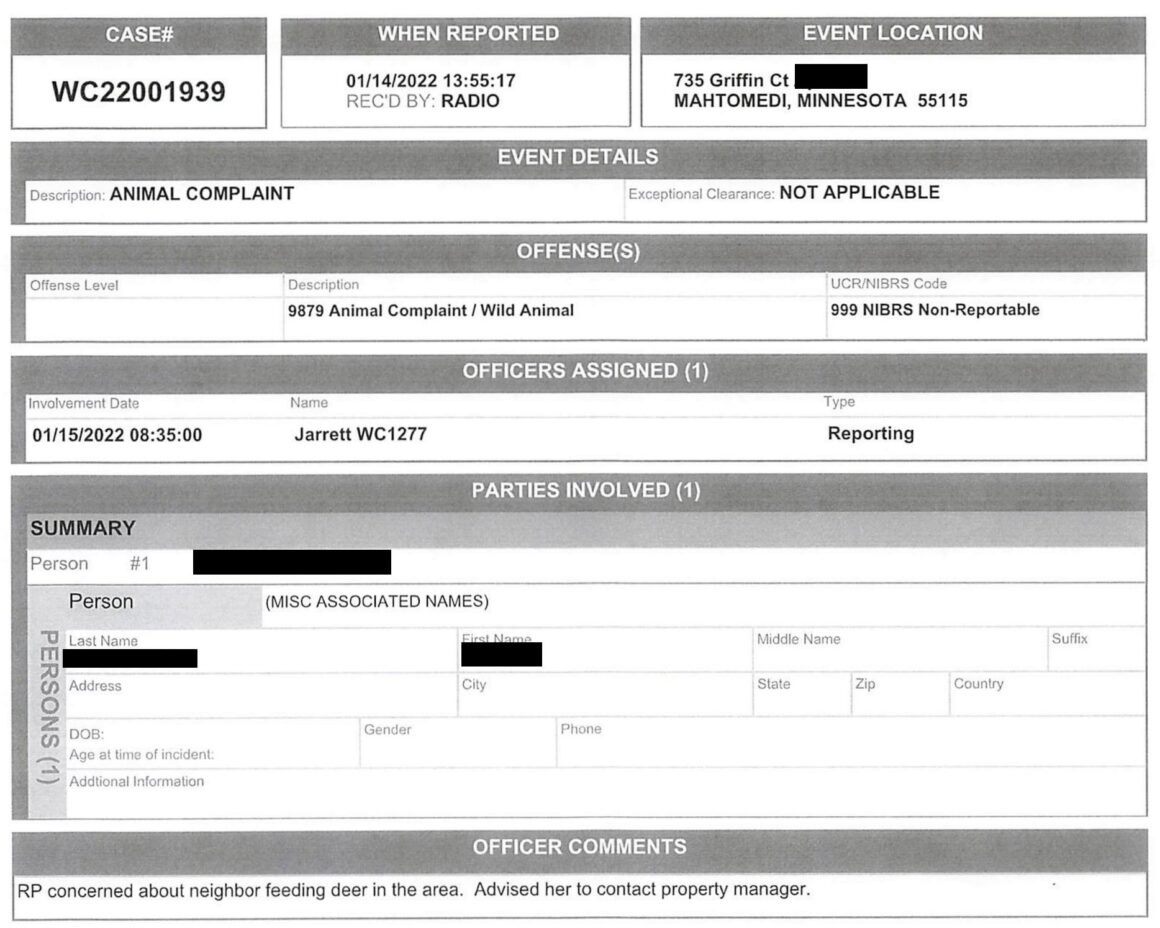
The White Bear Press Buries the Truth
In April 2022, I provided the White Bear Press with pages of data showing the city and its contracted sharpshooters failed to live up to their written agreement. The paper reduced this to a few lines about what I “said,” while proactively purporting “data privacy” issues, reaching out to the city, the bowhunters, the legislature, and a hunting lobbyist group based out of Ohio. Meanwhile, the Press left out crucial details, many if not all of which are included in these reports. Some of these included references to the deer feeding ban, advisory opinions and state statutes, the ways in which the city was dishonest with me, and ignoring almost all of the data I sent unless it fit the story’s predescribed agenda, instead pandering to a speculative audience about the ways that public data might be “seized” with “malicious intent.” Newspapers have historically advocated for greater transparency, so the change in stance–especially concerning the discharge of dangerous weapons in residential areas and the lack of public accountability–says a lot about what Press Publications values.
The paper failed to report that the city clerk falsely stated on November 1, 2021 that liability waivers were previously provided to me–something that was not possible, as the city was not in possession of them until a month later. This is why I requested all data that was previously sent to me and any communications mentioning me by name. Because of this data, it proved without a shadow of a doubt that the city was dishonest with me.
Another matter of public interest is what I perceive to be a conflict of interest. After years of writing about deer removal as a means to reduce deer eating flowers, White Bear Press staff writer, Loretta Harding, took part in Mahtomedi’s deer management through landowner consent to hunt. Less than a month prior, Harding authored “Could flowers return to Mahtomedi next spring?” for the Press. The staff writer opined: “If millions of flowers are allowed to bloom next spring and summer, Mahtomedi could well be in the position to hold a parade to rival the Tournament of Roses Parade in Pasadena–only with floats made from billions of hosta petals and geranium blooms. Yes, citizens… could be overwhelmed with flowers, following the Mahtomedi City Council’s action… to pass a resolution approving the 2021 deer population management program… with the Metro Bowhunters Resource Base… armed with written permission from private land owners.” It seems that Harding was one of those arming Metro Bowhunters’ quiver.
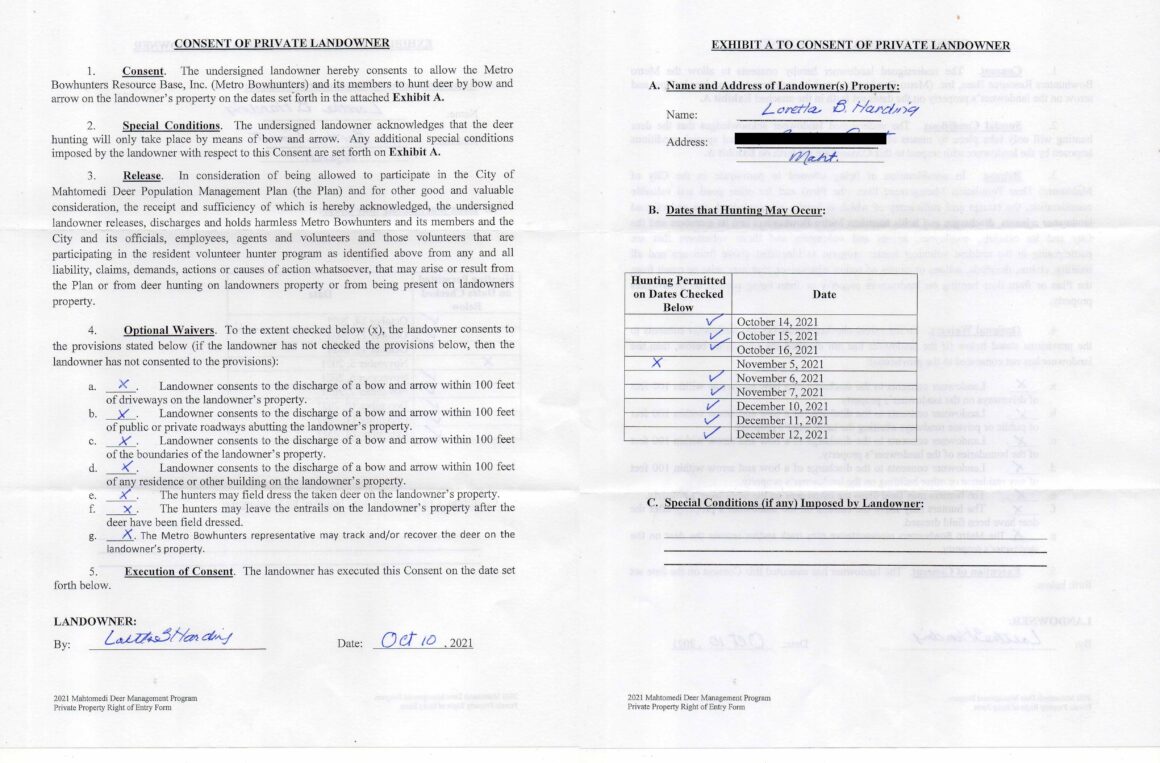
The previous year, Harding wrote: “If your hostas are presently chewed to the ground, help might soon be on the way.”
Attempting to raise concerns with the spin of Neutkens story and the lack of coverage for government accountability, I was told, “We are not planning to publish an additional story on the topic at this time.” Carter Johnson also responded with: “Please take us off your email list.”
I brought these concerns to the front desk of Carter Johnson, the publisher of the White Bear Press. He told me he did not know about his staff writer’s participation. He encouraged me to write multiple letters to the editor to get the information about the hunts to the public.
However, my first submission was gutted beyond recognition, removing references about my belief that a conflict of interest existed, that Harding should not have ethically been allowed to write about a topic she would participate in, that Debra Neutkens story covering my data practices requests was biased, that the bowhunters claimed to obey game laws and I questioned if they obey other laws, and that the city clerk provided me with false statements. For much of these, I provided documentary evidence of fact. When I raised the issue that the Press was refusing to publish matters of empirical fact, Amy Johnson, the news clerk, wrote: “We will not publish your letter to the editor, since you do not agree to the changes that make the letter meet our guidelines for publication. Please do not engage Press Publications or our staff further on this topic.”
Carter Johnson later emailed back about the subject, so I rewrote certain portions of my letter and resubmitted. Their edits allowed my letter to remain somewhat more recognizable, but still edited out that Loretta Harding was writing about deer in close proximity to participating as a landowner, that Neutkens coverage was biased, and struck out that the clerk was the city official who falsely told me that liability waivers were previously provided. I can verifiably prove the previous assertions through the following irrefutable evidence:
- Loretta Harding’s private landowner consent form (shown above), dated October 10, 2021. To me, this is a perceived conflict of interest when a staff writer benefits from passed public policy while in a position that shaped public perception about the topic, especially when slanting articles in favor of “hosta petals.”
- Jerene Rogers’ email, dated November 1, 2021, stating: “Deer management participant (bow hunter) forms which have been previously provided to you” and Bridget McCauley Nason’s December 22, 2021 email, stating: “With respect to the timing of the data provided to you, the City provided the certificate of liability insurance and names and addresses of hunters upon receipt, which was on December 8, 2021 and December 1, 2021, respectively.” Email transcripts show the data provided for liability waivers were the only responsive data and that the city did not appear to have them at the time of Rogers’ November 1 email. How could the city provide data it did not have? Furthermore, requests for data about myself showed that no one in the city had provided those liability waivers to me at any time on or before November 1, as alleged. Rogers’ allegation that data was provided was unequivocally false.
- The Press had previously allowed other letter writers to critique stories as “biased.” As a scholar of mass communications for over a decade, all media is biased. According to AllSides.com, “There’s no such thing as unbiased news. But hidden media bias misleads, manipulates and divides us.” Such biases could include those by omission, word connotation, false balance, speculative content, content bias, and concision bias–all of which I believe applied to Neutkens’ coverage.
- The White Bear Press published: “The metro bowhunters want people to know they follow all game laws and aren’t trophy hunters.” The Metro Bowhunters have not, at the time of this publication, provided IRS non-profit public disclosures.
- I inquired unsuccessfully into the Press’s code of ethics. I was never provided with the paper’s ethics code. This is the same for others I am aware of who requested a code of ethics in years past. However, in that absence, I would raise issue with the paper’s narrow and selective coverage of Mahtomedi’s deer management, citing the SPJ Code of Ethics and The New York Times Editorial Standards for Ethical Journalism.
Here are my sources for the above-named statements and my drafted letter to the editor:
- Letter to the Editor, first draft submitted August 12, 2022
- Letter to the Editor, second draft submitted September 1, 2022
- False statement that liability waivers were previously provided, Jerene Rogers, November 1, 2021
- Data provided upon receipt, Bridget McCauley Nason, December 22, 2021
- MBRB sends liability waivers to the city, November 30, 2021
- MBRB sends PDF of hunters drawn to the city, November 30, 2021
- MBRB sends certificate of liability insurance to the city of Mahtomedi, December 8, 2021
- Only responsive data for ‘Exhibit E’ forms, Jerene Rogers, January 18, 2022
On what grounds did the White Bear Press reject my letter to the editor without consenting to their edits? According to Carter Johnson, my letter contained “liabilities and derogatory items.” Judge for yourself by what standards the Press holds itself accountable. The factual proof is provided above. It is also difficult to ascertain to what degree something is considered “derogatory” based on Press Publications’ previous publications, which have used the following language:
- “…blowhards and bimbos on fascist and biased Fox News…” (September 14, 2011)
- “I couldn’t believe the Quad would print such a biased, baseless, unsupported psycho babble column.” (August 22, 2006)
- “Last week the Vadnais Heights Press wrongfully included me in an article which was biased and written for one single purpose.” (August 11, 2021)
- “The cartoonist… a generous euphemism… as he is clearly a biased political hack…” (April 10, 2012)
- “…an editorial so completely one sided and totally void of any research/ documentation to validate his totally biased statements.” (June 16, 2009)
- A rebuttal to Kristine Goodrich’s “Don’t Roll the Dice with Genetics” (an arguably offensive piece in itself): “As a dwarf, I am deeply offended at her biased disregard and her self-righteous implication on issues of parenting and God.” (November 7, 2007)
- “I read Amber’s opinion story and find it somewhat ironic she didn’t think she wrote a biased story? …keep Amber and her biased opinions out.” (October 14, 2008)
- “The recent article shows that small town newspapers like the White Bear Press have biased staff writers as well…. reported half truths, twisted facts to fit his bias, and reported complete falsifications… that implies a conflict of interest exists.” (March 24, 2009)
- “Quad is biased toward city point of view… I have… watched your paper constantly put the city’s side of any issue in a good light while any opposition against the city is watered down from your editors.” (February 23, 2010)
- “…you allowed a biased guest columnist…” (June 23, 2010)
- “…have hit another low in terms of the use of his biased, unsubstantiated ‘facts’.” (June 29, 2011)
- “The only reportable danger was in the biased mind of the Grant resident and in the racist reports of the sheriff’s deputy and the White Bear Press reporter and editor.” (September 2, 2020)
- “When one’s biases start seeping in to my already oil filled hip boots, I long for someone with journalistic credentials in excess of Brian Williams.” (February 17, 2015)
And, most notably, former editor Kristine Goodrich wrote on August 26, 2008: “We reporters have our own biases… Every letter to the editor we receive is published and every Web site comment is published (albeit we will edit out any unsubstantiated claims and needless name calling).”
“Think you’ve spotted bias? You’re welcome to let us, and all our readers, know.”
Kristine Goodrich, White Bear Press
Apparently not.
Carter Johnson has written that letters to the editor are “a voice allowing the community to call out a concern” and that 99.9% of all letters that meet published guidelines are printed. “Letters that contain facts will be scrutinized… please include citations.” Yet, despite all necessary documentation being provided, the Press was unwilling to publish the full truth. “It is not our policy to reject [opinions] arbitrarily.” Further, Johnson has written that “we try to get right back to the letter writer if something needs to be addressed before we can publish… and encourage them to resubmit it.” One of the responses for edits I received was within a day of the letter going to print–like it or lump it, accept it or we won’t print it. When asking for clarification and providing further citations, the Johnsons continually shut me down.
Do you trust the White Bear Press to give you the full truth without making selective edits? I would expect similar censorship under authoritarianism, not in my hometown. This letter writing process showed me that the Press does not hold itself accountable to all members of the public. Based on my experiences, it is my opinion that the White Bear Press is allergic to any part of the truth that does not fit its publisher’s preconceived agenda.
When the truth is labeled “derogatory,” I shudder to think how other areas of government receive coverage by the media. Citizens have the right to petition the government for a redress of grievances without fear of punishment or reprisal. The news is one place people used to be able to reach an audience about concerns. It becomes increasingly more difficult to do so when powerful media outlets protect the interests of the government, creating a chilling effect on one’s right to dissent. Challenging the established narrative is done at one’s own peril.
Residents Out of Touch?
The city’s 2021 survey showed over half of respondents (60%) as having little or no contact with city staff, yet 84% ranking them as “good” or “excellent” with a notable increase to 12% as “only fair.” If contact with city staff is used as a measurement for civic engagement, then perhaps 60% of the good and excellent ratings have questionable validity based on the work residents assume the city is doing.
Given the results of this data practices request, I would question anything the city of Mahtomedi promotes without digging into the data myself. I would not trust any measures passed in the “community’s best interest” without the full transparency of what transpired behind the scenes.
Important Statutes and Advisory Opinions
Below, you will find relevant statutes, advisory opinions from the Data Practices Office, and other applicable laws.
MINN. STAT. § 13 establishes a presumption that government data are public and are accessible by the public for both inspection and copying unless there is federal law, a state statute, or a temporary classification of data that provides that certain data are not public.
MINN. STAT. § 13.03, SUBD. 3(f) If the responsible authority or designee determines that the requested data is classified so as to deny the requesting person access, the responsible authority or designee shall inform the requesting person of the determination either orally at the time of the request, or in writing as soon after that time as possible, and shall cite the specific statutory section, temporary classification, or specific provision of federal law on which the determination is based. Upon the request of any person denied access to data, the responsible authority or designee shall certify in writing that the request has been denied and cite the specific statutory section, temporary classification, or specific provision of federal law upon which the denial was based.
For months, I was never provided with any specific citations of statutes that would deny me access to some of the government data I requested.
MINN. STAT. § 13.43, SUBD. 2(1) Except for employees described in subdivision 5 and subject to the limitations described in subdivision 5a, the following personnel data on current and former employees, volunteers, and independent contractors of a government entity is public:
(1) name; employee identification number, which must not be the employee’s Social Security number; actual gross salary; salary range; terms and conditions of employment relationship; contract fees; actual gross pension; the value and nature of employer paid fringe benefits; and the basis for and the amount of any added remuneration, including expense reimbursement, in addition to salary;
Names of volunteers are public data. The presumption of public data is reversed for personnel data and access to the public is limited to that which is specified in MINN. STAT. § 13.43, which includes names. This does not negate the city of Mahtomedi’s contractual obligations to create, collect, and maintain this data.
MINN. STAT. § 13.05, SUBD. 11 If a government entity enters into a contract with a private person to perform any of its functions, all of the data created, collected, received, stored, used, maintained, or disseminated by the private person in performing those functions is subject to the requirements of this chapter and the private person must comply with those requirements as if it were a government entity. All contracts entered into by a government entity must include a notice that the requirements of this subdivision apply to the contract. Failure to include the notice in the contract does not invalidate the application of this subdivision. The remedies in section 13.08 apply to the private person under this subdivision.
(b) This subdivision does not create a duty on the part of the private person to provide access to public data to the public if the public data are available from the government entity, except as required by the terms of the contract.
I sought data from the independent contractor when it was clear the city did not have it. Mahtomedi’s contract failed to include the required “notice that the requirements of this subdivision apply to the contract.”
Helmberger v. Johnson Controls, Inc. (839 N.W.2d 527) supports that a private contractor, even when the notice required by state statutes is not included in the contract, must comply with the requirements of the Data Practices Act. The court found that seeking to make government data private by not including the required notice, the purposes of the act would be thwarted, leading to absurd results. The case makes not that this was not the legislature’s intention, and that data created–regardless of the notice–is covered by the act when the contractor perform a government function. Regarding Mahtomedi and the Metro Bowhunters, wildlife management services has been a prescribed function of the government underneath the DNR, and when not covered by the DNR, a function that local government units utilize or contract out for.
MINN. STAT. § 13.08, SUBD. 1 Notwithstanding section 466.03, a responsible authority or government entity which violates any provision of this chapter is liable to a person or representative of a decedent who suffers any damage as a result of the violation, and the person damaged or a representative in the case of private data on decedents or confidential data on decedents may bring an action against the responsible authority or government entity to cover any damages sustained, plus costs and reasonable attorney fees. In the case of a willful violation, the government entity shall, in addition, be liable to exemplary damages of not less than $1,000, nor more than $15,000 for each violation. The state is deemed to have waived any immunity to a cause of action brought under this chapter.
It is difficult to prove actions are “willful” rather than “negligent.” This loophole makes it difficult for data requesters to seek relief and vindication.
MINN. STAT. § 13.601, SUBD. 2 Correspondence between individuals and elected officials is private data on individuals, but may be made public by either the sender or the recipient.
I received no data on communications with elected officials. These appear to have been withheld in many cases, pursuant to MINN. STAT. § 13.601, SUBD. 2. This is concerning, given the city had no centralized log of complaints or universal system for managing concerns about deer. The city did not have this. Therefore, by elected officials declining to make the complaints they received public, there is scant other evidence of citizen complaints, little transparency, and little information that shows how the city’s actions were guided. Some complaints that were forwarded to other members of city government were provided.
Additionally, this substantiates the reason that best practices for deer management include having a centralized log of complaints; such a log would provide the public with transparency.
Aside from Lilly Melander, no other elected official took the time to respond to my communications concerning the city’s lack of data provided and lack of data maintained.
MINN. STAT. § 15.17 Official records [m]ust be kept. All officers and agencies of the state, counties, cities, towns, school districts, municipal subdivisions or corporations, or other public authorities or political entities within the state, hereinafter “public officer,” shall make and preserve all records necessary to a full and accurate knowledge of their official activities. Government records may be produced in the form of computerized records. All government records shall be made on a physical medium of a quality to insure permanent records….The public officer is empowered to reproduce these records by any photographic, photostatic, microphotographic, optical disk imaging system, microfilming, or other reproduction method that clearly and accurately reproduces the records.
Responsibility for records. The chief administrative officer of each public agency shall be responsible for the preservation and care of the agency’s government records, which shall include written or printed books, papers, letters, contracts, documents, maps, plans, computer-based data, and other records made or received pursuant to law or in connection with the transaction of public business. It shall be the duty of each agency, and of its chief administrative officer, to carefully protect and preserve government records from deterioration, mutilation, loss, or destruction. Records or record books may be repaired, renovated, or rebound when necessary to preserve them properly.”
Mahtomedi and Metro Bowhunter Contract, Article 6.4 Counterparts. This Agreement may be executed in any number of counterparts, each of which shall be deemed an original but all of which shall constitute one and the same instrument.
It would seem this must include Exhibit E: Release of Liability, Waiver of Legal Rights and Assumption of Risk. Does this extend to the original, unredacted liability waivers? It looks like it would fall within the scope of MINN. STAT. § 15.17 for both the responsibility “for the preservation and care of… records” and “in connection with the transaction of public business.”
Advisory Opinion 15-003 It has been over six weeks since I have submitted my information requests to Mr. Krivit. He has failed to make any attempt to contact me or respond to my information request.
Mr. Kysylyczyn stated that he has not received a response from Foth. The Commissioner has issued a number of opinions stating that no response is not a proper response. (See Advisory Opinions 01-024, 04-008, and 09-027) Here, Chapter 13 requires Foth to respond to requests for public data from members of the public in an appropriate and prompt manner and within a reasonable time and Foth has not done so. Therefore, Foth has not complied.
Pursuant to Minnesota Statutes, section 13.03, when a government entity receives a data request from a requester who is not the subject of the data, the entity is required to respond in an appropriate and prompt manner and within a reasonable time… The Contractor [Foth] will comply with all applicable provisions of the Minnesota Government Data Practices Act, Chapter 13 of the Minnesota Statutes, as amended. Because Foth entered into a contract with the City of Bloomington to create and implement a solid waste management process, Foth must comply with Chapter 13 as though it is a government entity with regard to data that Foth creates, collects, receives, stores, uses, maintains, or disseminates related to its contractual duties. Responding to data requests is one of the requirements to comply with Chapter 13.
In WDSI, INC. v. County of Steele, 672 N.W.2d 617, 621-622 (Minn. Ct. App. 2003), the Court of Appeals held:
If a private party fails to comply with the MGDPA, the remedy is against the private party. The statute does not suggest that a governmental entity that does not possess the requested data must informally execute that remedy by obtaining the data from the private party. It appears undisputed that Steele County does not have the data; thus, KKE is the party against whom WDSI needs to seek its MGDPA remedy.
Pursuant to Minnesota Statutes, Chapter 13, Foth Infrastructure and Environment, LLC did not comply with the requirement to respond to a request for data related to Foth’s contracts with the City of Bloomington to create and implement a solid waste management process.
Metro Bowhunters received a data request while under contract with the City of Mahtomedi and did not respond to the request for almost two months, which appears neither prompt nor within a reasonable amount of time. Also, during that time, it was also clear that no response is not an appropriate response. When they did respond, Metro Bowhunters and their attorney never provided any specific statute that would prevent data access, although the wording mirrors that of MINN. STAT. § 13.05, SUBD. 11. Keane told me to “…look to the cities for [my] relief. The MGPDA explicitly provides that it does not create a duty on the part of a private entity such as the Metro Bowhunters to provide access to public data if the public data is available from the government entity, except as required by the terms of any contract. No such contract requires it here.”
It is my opinion that Keane’s letter failed to fully grasp chapter MINN. STAT. § 13.05, which specified “if the public data are available from the government entity.” It is my understanding that all government data that a contracted entity creates is data subject to MINN STAT. 13 and can be requested from the contracted private party if that data is not held by the government entity. The city never had nor possessed unredacted liability waivers, a part of the full instrument defined in the contract. It is also difficult to reconcile Keane’s statement that I needed to look to the city for my relief when the statute clearly states: “If a private party fails to comply with the MGDPA, the remedy is against the private party.”
Keane furthered that as a lawyer “for more than 30 years” and his familiarity with the MGDPA, I “erroneously” believed I was “entitled” to information that “is not considered ‘government data,'” calling my request a “warped interpretation” of the law. To be fair, there was probably data I requested that I was not entitled to. However, I believe there was at least some data I was entitled to under the law.
Complicating this further was the fact that the contract expired after I made my request but before I was provided with any data. I was informed by the DPO that, “Once the contractual relationship has ended… there is not a continuing obligation for the private party to respond to requests or administer data under the Data Practices Act. Ultimately, the government entity is responsible for obtaining any official records from the contractor and then administering them pursuant to the records retention schedule. The issues largely come down to the City’s records management practices, which, while connected to data practices, are outside the scope of the Commissioner to issue an opinion.” This conflicts with a the opinion of independent data practices experts I consulted with, who had not seen the statute interpreted in that way. To my understanding, this might be a conflict between the requirements of MINN. STAT. § 13.05, SUBD. 11, MINN. STAT. § 15.17, and Advisory Opinion 15-003. If this does provide a loophole for contractors to run out the clock on their contracts and provide no data, I would hope this is something the legislature would address.
Advisory Opinion 96-013 OEA, under Minnesota Statutes Chapter 13, must provide Mr. Young with access to public government data in a prompt manner and within a reasonable time. Mr. Young was not provided access to all of the data he requested as of seven weeks after his request, which is neither prompt nor within a reasonable time…. [I]t appears that OEA had neither secured copies of the data held in the physical possession of its consultant Malcolm Pirnie, Inc., nor arranged for Mr. Young to gain access to those data directly from Malcolm Pirnie, Inc. Regardless whether certain of the data Mr. Young seeks are in the physical possession of OEA’s contractor, OEA retains the obligation to provide access to those data.
Does this imply that the city should have retroactively obtained the records I requested?
Advisory Opinion 94-035 The report that Mr. Biernat seeks access to is public data for purposes of Chapter 13. A copy of the report should be made available to him at a cost not to exceed the actual cost of copying by the consultant, because it has obligated itself to comply with Chapter 13. The County should make a copy of this report available to Mr. Biernat because it should have retained a copy of the report in order to comply with Chapter 13 and with Minnesota Statutes Section 15.17.
When read together, Section 15.17 and Section 13.03, impose an obligation on the County to preserve records that it uses to conduct public business so that those records will be available for public inspection. In this situation, it is quite clear that the County used and relied on the consultant’s report to make decisions about its compensation system. It is also clear that the County failed in its obligation to preserve the report that it used and on which it relied in making decisions concerning the public’s business. To fulfill its obligations under Minnesota Statutes, the County should re-acquire a copy of the report and make it available to the public under the conditions provided in Chapter 13.
The city never obtained or retained original copies of signed liability waivers, which were part of its contract. It seems the city should re-acquire and maintain these, per the advisory opinion and state statute.
The DPO does not have enforcement authority and records management was removed from its scope in the early 2000s. There is currently no overarching authority that regulates records management for the government. As such, recourse to uphold statutes and opinions appears costly and would deter aggrieved parties from seeking relief.
Advisory Opinion 96-012 [A] response six weeks later, in a case in which the data requested were clearly identified, cannot be construed to be either prompt or reasonable…. In the case of Mr. Spaulding’s request for access to public and private data about himself, the response required from DNR was provision of the data or a clear statement that the data he was seeking do not exist…. DNR is obligated to provide access to other public government data in a prompt manner and within a reasonable time. Mr. Spaulding was not provided access to the majority of the data he requested for nearly eight weeks, which is neither prompt nor within a reasonable time.
The City of Mahtomedi sat on data that was requested, some not provided until after the fourth data practices request. The duration between the first time some of the data was requested and when the data was provided spanned lengths as long as three and five months. This advisory opinion makes clear that eight weeks was not reasonable. Therefore, how can 12 weeks and 20 weeks be considered reasonable?
Advisory Opinion 07-006 The Commissioner’s opinion is that the audio recordings Mr. Elseth and Mr. Zutz made of the board meetings are not official records and, therefore, are not subject to retention requirements. Based on the comments from Mr. Elseth and Mr. Zutz, it appears the data no longer exist. Although the District is not required to maintain the data for any specific period of time, if the audio recordings existed at the time Mr. Anderson made his request, and the District was in possession of them, the District was required to provide access to them.
This does not change the fact that the recordings are government data.
I was informed by the DPO that, “As far as records retention, once you have made your request, the entity should not destroy any data that is responsive, even if the time period for destruction comes up.” Some of the data I requested were not official records, however the data appeared to be government data that existed at the time I made my request, and at which point both entities were aware of my requests for the same data.
One loophole appears to be that the city never had the originals or facsimiles of liability waivers in its possession. However, these were requested while Metro Bowhunters was still under contract.
Advisory Opinion 11-002 In reviewing the payroll data in light of the request as stated above, and MN Statutes 13.05 and 13.43, [CDA redacted] several items from the payroll reports such as the individual employees’ tax withholding information, and the employees’ addresses…. Pursuant to Minnesota Statutes, Chapter 13, the following data the Dakota County Community Development Agency (CDA) maintains in compliance with prevailing wage laws are public: the home addresses of contractor/subcontractor employees contained in certified payroll reports.
While hunter addresses are appropriately private data, their names as contracted volunteers are public data, which were redacted by Metro Bowhunters on official contract documents.
Advisory Opinion 17-002 The City did not comply with the Data Practices Act when it redacted the full date of birth of the defendant from a copy of a criminal complaint, if the complaint had been presented in court at the time the City provided a copy to the public.
The city did not redact the document, but its contractor did.
Advisory Opinion 15-006 “Because the data are public, the City may not agree to redact or otherwise restrict access to draft investigation report, pursuant to Minnesota Statutes, section 13.43, subdivision 10…. A government entity may not enter into an agreement settling a dispute arising out of the employment relationship with the purpose or effect of limiting access to or disclosure of personnel data or limiting the discussion of information or opinions related to personnel data. An agreement or portion of an agreement that violates this paragraph is void and unenforceable. Therefore, the City may not enter into an agreement to redact or otherwise restrict access to the public data in the report.
The city never obtained nor maintained unredacted copies of liability waivers, which were instruments in part of the whole fully executed contract with Metro Bowhunters. The Mahtomedi City Council sought ways during open public meetings to restrict access to public personnel data I had requested.
Advisory Opinion 08-023 Mr. Burke continued unsuccessfully to ask the District for access to an unredacted copy of the contract. In July 2008, Dr. Meeks, acting personally, and not on behalf of the District, provided Mr. Burke with an unredacted copy of his contract. The District itself continued to deny Mr. Burke access to an unredacted copy…. Independent School District 192, Farmington, did not comply with Minnesota Statutes, Chapter 13, in its response to a request for a copy of its Superintendent’s employment contract.
The city never obtained nor maintained unredacted copies of its liability waivers. I continued to request these from both parties while both were still under contract.
Advisory Opinion 03-017 Pursuant to Minnesota Statutes, Chapter 13 and Minnesota Statutes, section 15.17, the Minnesota Department of Transportation should maintain a copy of the unredacted contracts ZRC has with its subcontractors…. When read together, Section 15.17 and Section 13.03, impose an obligation on the County to preserve records that it uses to conduct public business so that those records will be available for public inspection…. It is also clear that the County failed in its obligation to preserve the report that it used and on which it relied in making decisions concerning the public’s business. To fulfill its obligations under Minnesota Statutes, the County should re-acquire a copy of the report and make it available to the public under the conditions provided in Chapter 13….Thus, to comply with its obligations under Chapter 13 and section 15.17, the Department should request that ZRC provide to the Department the data in question. If ZRC refuses to release the pricing information, an option available to the Department is for it to bring an action against ZRC for a violation of the contract. The Commissioner notes that options available to the Star Tribune in seeking access to the pricing information include requesting the data from the Department and requesting the data directly from ZRC.”
The city never obtained nor maintained unredacted copies of its liability waivers.
Advisory Opinion 01-005 Ms. Clark contended that MnSCU should have provided a statutory citation relating to the redacted data…. Finally, the Commissioner agrees with Ms. Kaplan that when MnSCU refused to disclose some of the data to X (by redaction), MnSCU should have provided X with the statutory citations upon which it relied to deny access to the data. See section 13.03, subdivision 3…. Pursuant to Minnesota Statutes, section 13.03, in its February 22, 2000, response, MnSCU should have provided X with the statutory citations upon which MnSCU denied X access to data. It was not appropriate for MnSCU to withhold data from X pursuant to section 13.43, subdivision 6.
Advisory Opinions 03-046, 03-030, and 03-031 (involving ISD 832): …Compliance with Chapter 13 should not depend upon whether or not one specific person is available to respond to a data request. Government entities must enact policies and procedures for managing government data so that they are able to respond properly within the statutory time frames, with the personnel available when they receive a data request.
The DPO relayed to me that, “[E]ven if the responsible authority is sometimes not available, data requests still need to be processed.” There were at least nine separate “out of office” replies during my requests, during which the city maintained data and did not provide access in what I believe to be a timely manner (over the course of many months). At one point, the city attorney provided the reason for the delay in response as: “the clerk was out of the office since last Thursday.” Another “out of office” reply indicated that the clerk would not be in for another two weeks. I do not believe, given the scope of my original two requests, that the response was either prompt or within a reasonable amount of time.
IRS Public Disclosure Requirements
An exempt organization must make available for public inspection its exemption application. An exemption application includes the Form 1023 or Form 1023-EZ (for organizations recognized as exempt under Internal Revenue Code section 501(c)(3)), Form 1024 or Form 1024-A, as applicable, (for organizations recognized as exempt under most other paragraphs of section 501(c)), or the letter submitted under the paragraphs for which no form is prescribed, together with supporting documents and any letter or document issued by the IRS concerning the application. A political organization exempt from taxation under section 527(a) must make available for public inspection and copying its notice of status, Form 8871. In addition, an exempt organization must make available for public inspection and copying its annual return. Returns must be available for a three-year period beginning with the due date of the return (including any extension of time for filing). For this purpose, the return includes any schedules, attachments, or supporting documents that relate to the imposition of tax on the unrelated business income of the charity.” Copies usually must be provided immediately in the case of in-person requests, and within 30 days in the case of written requests. Responsible persons of a tax-exempt organization who fail to provide the documents as required may be subject to a penalty of $20 per day for as long as the failure continues. There is a maximum penalty of $10,000 for each failure to provide a copy of an annual information return. There is no maximum penalty for the failure to provide a copy of an exemption application.
I have not received any of this information from Metro Bowhunters despite asking for it twice and with multiple follow-ups. This was originally requested on December 23, 2021. More information about required disclosures can be found at the IRS’s Required Disclosure Course and the 2021 Instructions for Form 990.
According to Strimmel Law: “The penalty for willful failure to allow public inspection of a return or exemption application is five thousand dollars for each return or application and the same penalty also applies to a willful failure to provide copies.” Bolder Advocacy states that any person who willfully fails to comply with the public inspection requirements can face an additional $10,000 penalty.
Metro Bowhunters’ attorney wrote: “[W]e do not intend to provide you with more information than the city has already provided you,” further noting that the public disclosures requested were “certain information… that a private organization considers private.” MBRB and their attorney were notified in February that nonprofits must make public disclosures available for public inspection and provide copies of these documents upon request. These communications were further ignored. I question how the IRS might define “willfully failing to comply” and if that applies to this circumstance eight months later.
Conclusion
Were the city and its contractor’s actions appropriate in the scope of Minnesota Statutes Chapters 13 and 15? Does more need to be done in Mahtomedi to ensure government records can be accessed promptly and that records documenting transactions of business are preserved?
Based on the evidence, decide for yourself.
This article is a part of a series related to problems with the deer management in Mahtomedi and the city’s seemingly poor records management practices. For more information please see:
- Mahtomedi and Bowhunters Skirt Public Accountability (shorter read – overview)
- Metro Bowhunters Appear to Breach Contract With City of Mahtomedi (shorter read – contract and data practices)
- Disquieting Records Management Issues Uncovered in Mahtomedi (full report – problems with obtaining data, maintained records, and lack of oversight into the hunts)
- How Mahtomedi Failed to Implement Effective Deer Management (full report – an examination of various studies, mitigation strategies, and difference between effective strategies and Mahtomedi’s deer management plan)


